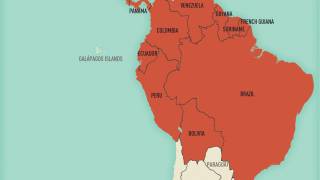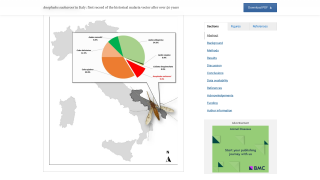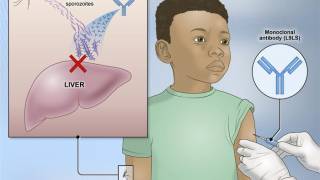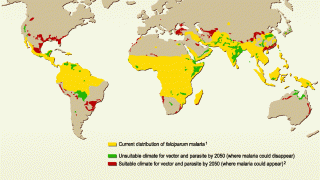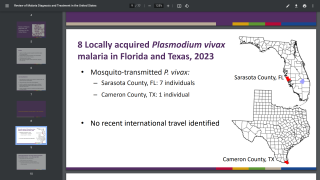Malaria Prevention Programs Impacted By Coronavirus Pandemic

Severe disruptions to insecticide-treated net campaigns and in access to antimalarial medicines could lead to a doubling in the number of malaria deaths in sub-Saharan Africa, according to a new modeling analysis released by the World Health Organization (WHO).
This analysis considers 9 scenarios for potential disruptions in access to core malaria control tools during the pandemic in 41 countries, and the resulting increases that may be seen in cases and deaths.
Under the worst-case scenario, in which all insecticide-treated net (ITN) campaigns are suspended and there is a 75% reduction in access to effective antimalarial medicines, the estimated total of malaria deaths in sub-Saharan Africa in 2020 would reach 769,000.
This would represent a return to malaria mortality levels last seen 20 years ago.
On April 23, 2020, the WHO urged countries to distribute malaria prevention and treatment tools at this stage of the COVID-19 disease outbreak in sub-Saharan Africa, and to do their utmost to safely maintain these essential malaria control services.
According to the World malaria report 2019, sub-Saharan Africa accounted for approximately 93% of all malaria cases and 94% of deaths in 2018.
More than two-thirds of deaths were among children under the age of five.
Malaria is a preventable and treatable disease caused by parasites that are transmitted to people through the bites of infected female Anopheles mosquitoes. In 2018, there were an estimated 228 million cases of malaria worldwide and 405,000 malaria-related deaths.
To date, the number of reported cases of COVID-19 in sub-Saharan Africa has represented only a small proportion of the global total, though cases are increasing every week.
The WHO and partners commend the leaders of Benin, the Democratic Republic of the Congo, Sierra Leone and Chad for initiating ITN campaigns during the pandemic.
Other countries are also adapting their net distribution strategies to ensure households receive the nets as quickly and safely as possible.
Furthermore, preventive therapies for pregnant women and children must be maintained.
The provision of prompt diagnostic testing and effective antimalarial medicines are also essential to prevent a mild case of malaria from progressing to severe illness and death.
WHO and partners have developed guidance to ensure that those suffering from malaria can safely receive the care they need within the package of essential health services to be delivered in COVID-19 settings.
Tailoring malaria interventions in COVID-19 response includes guidance on the prevention of infection through vector control and chemoprevention, testing, treatment of cases, clinical services, supply chain, and laboratory activities.
Even in the USA, malaria continues to threaten the health of international travelers, military, and citizens living abroad, with an average of 2,000 imported cases diagnosed annually.
About 300 persons are diagnosed with severe malaria in the USA each year.
Based on a travel-risk assessment, specific malaria prevention interventions should be used by the traveler. Often this includes avoiding mosquito bites through the use of repellents or insecticide-treated bed nets, and specific medicines to prevent malaria.
If malaria prevention medicines will be needed, the Malaria Information by Country Table lists the recommended options, which should be discussed with a healthcare provider prior to departing abroad, says the WHO.
International malaria prevention news published by Vax-Before-Travel.
Our Trust Standards: Medical Advisory Committee












